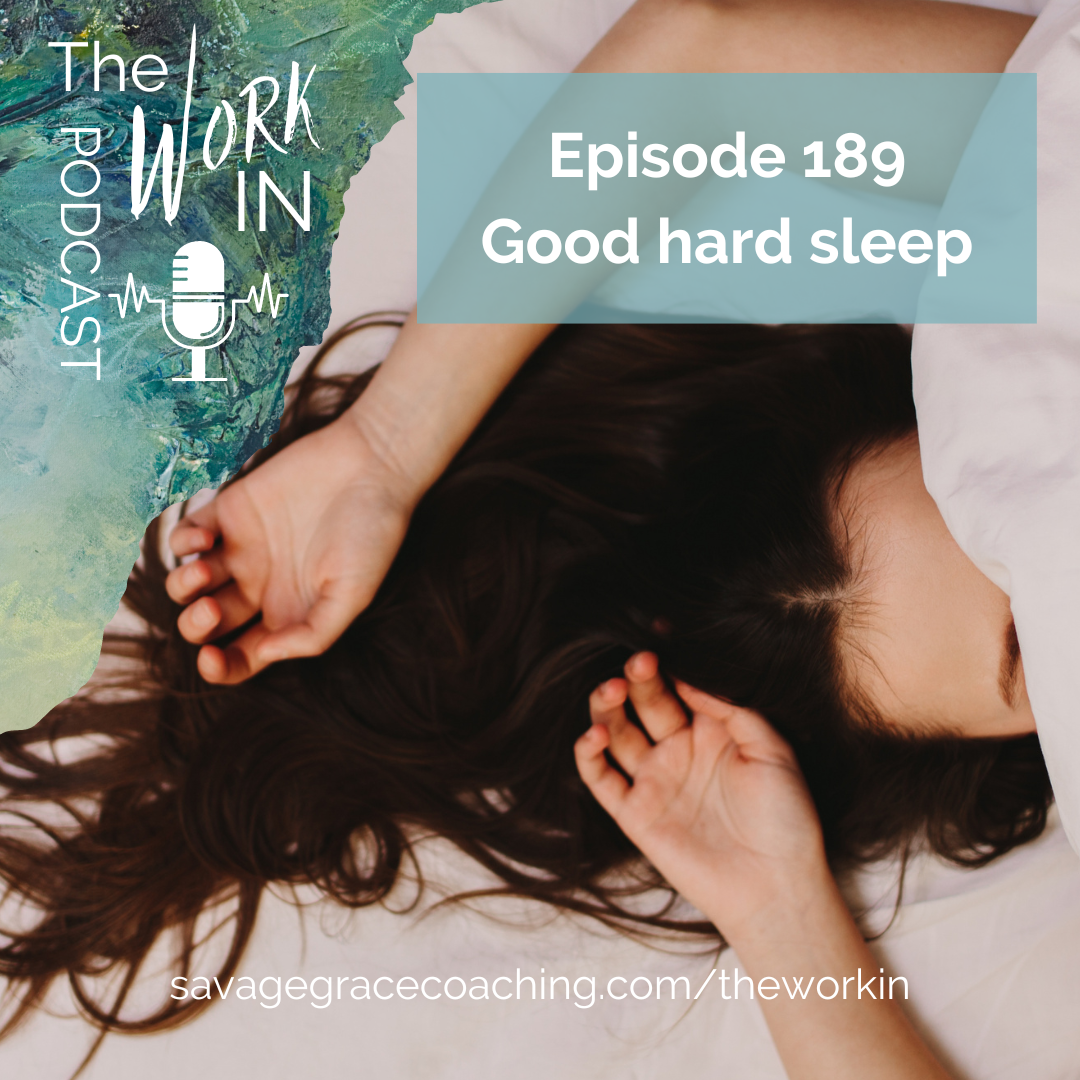
Welcome to The Work IN!
Good hard sleep
Sleep is a hard thing. Good sleep is even harder.The complexity of our network of systems makes it even harder to isolate the keys to getting a great night’s sleep when literally anything and everything can disturb our sleep. While occasional sleep disturbances can be normal for sure, long term sleep disruption is not. Our work IN this week is changing the way we look at the complex puzzle of sleep from a nice to have to a non negotiable priority in our health.
Uncommon sense on your plate
Eating “right” is a hard thing but not because it’s actually hard to do. Experts keep changing their minds, making unsupported nutrition recommendations that are riddled with conflicts of interest and have resulted in the exact opposite of health in the real world. That’s confusing and annoying and challenging but that’s not really what makes it hard either. Eating right is hard because we have outsourced our common sense when it comes to basic biology of nourishment for the bodies we live in. That’s our work IN today. We’re looking at 5 simple ways to reclaim the uncommon sense around nutrition in order to nourish the body, mind and nervous system.
Hard is sexy
Goldilocks got it wrong. At least when it comes to exercise. Hard is sexy. Hard is effective. Hard makes everything easier. Hard exercise is required to maintain and build the kind of muscle that supports health span not just life span. That’s our Work IN today. 3 necessary components in any health plan to find ease in the kind of hard effort that’s required for longevity while still supporting our nervous system.
Hard things in health
They say yoga poses don’t begin until you want to quit. That is true for everything in health and wellness. If we want to be strong, healthy and well beyond the false sense of security that comes with mainstream medical health markers we need to do hard things. We need to ask our body for more and stop quitting on ourselves before we get there. Today on the Work IN we’re looking at how to leverage the body’s adaptation pathways through exercise and nutrition for lasting physical mental and emotional health that don’t come in a bottle.
Stress: My favorite addiction
Until about the age of 7 we don’t have the ability to reject any ideas or beliefs that we’re exposed to. Our baby brains haven’t developed that kind of filtering yet. So our early years are marinating in the beliefs of our caregivers about who we are and what we’re capable of in this world, what we should and shouldn’t do. By the age of 7 are well and truly programmed with all kinds of micro cultural expectations around health, wealth, education and behavior. For many people that micro culture includes identity pathologies and socially acceptable addictions like food and alcohol but also the emotional energy of stress and over commitment on one side and victimhood on the other. Our Work IN today is how to use the 3 things we’re always trying to let go of in yoga; judgment, expectation and attachment to defy definitions and expand our health beyond what the eyes can see and break our stress addiction.
Hypervigilance: A recipe for socially acceptable addiction
Hypervigilance is a common stress and trauma response where it feels like you’re always on high alert. It’s also one of those things that opens the door to self medicating because when we can’t self regulate our nervous system we often turn to external chemical regulation. Our work IN today is how hypervigilance as a stress response can lead to socially acceptable addiction and natural ways we can self regulate for ourselves and our students.






